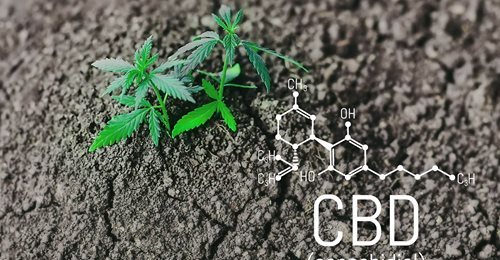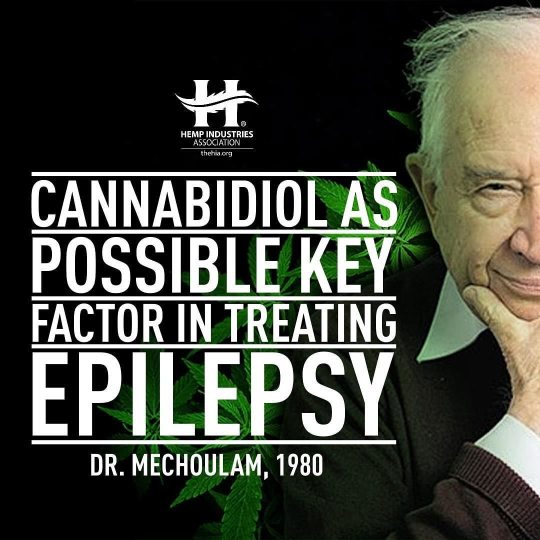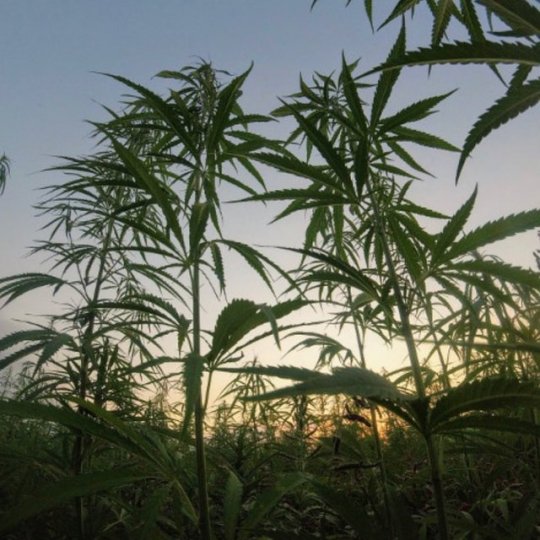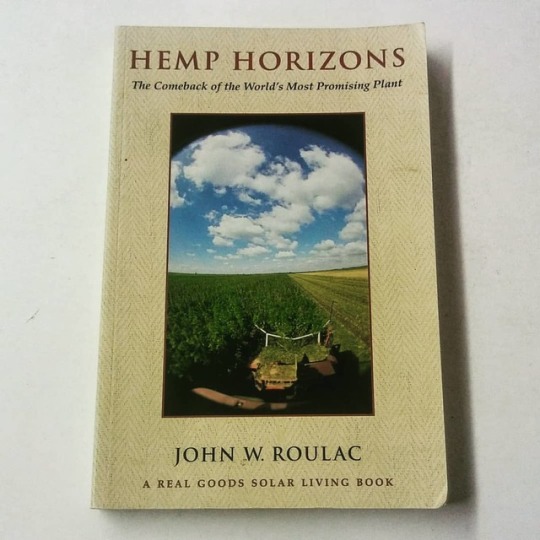#hemphistory
Link
In part two of our multi-part series, Cannabis' Influence on Pop Culture, we discuss cannabis and pop culture from 1970 to 2000.
0 notes
Video
youtube
The Origin of Hemp - It’s not what you think.
1 note
·
View note
Photo

CBD Oil is just one product from the hemp plant, literally every component of the plant can be used for something. The yarn used to produce fabric is made from the long stringy fibres of the plants outer stalk (Image shown: Renaissance industry - clothes workshop of the 16th century with tailor and workers producing linen, cotton and hemp garments)
#wednesdaywisdom#wednesday#nopcoils#climateaction#climate emergency#nature#hempfact#hemphistory#sustainable#sustainability#hemprevolution#history#recycle#vegan#saveourplanet#save the trees#savetheearth#climatechangeisreal#gogreen#ecofriendly#wednesdaythoughts
1 note
·
View note
Text
THC Corey Mendes Interview - 9:2:19, 11.49 PM
#agriculture#cannabis#cbd#education#hemp#hempcrete#hempeducation#hempfarming#hemphistory#hempysweetleaf#podcast#texas#texashemp#thehempchat#tinyhemphouses
1 note
·
View note
Video
#Repost @the_ihea ・・・ The long awaited most informational, educational comprehensive book on #Hemp is here!! #TheIndigenousHistoryOfHemp written and researched by @the_ihea Founder and CEO @chief_redwolf . This 📖 gives the historical timeline the last documented 10k years, Indigenous cultures have used this plant medicinaly, recreationaly, ritually, industrially, spiritualy, holistically. They have invented the smoking tools we still use today. The bong, pipe, water pipe, hookah, chalice are all @primitive_pipes used by Indigenous Tribes. Theres even documentation of Aboriginals smoking blunts( #cannabis wrapped in #tobacco leaf) early as 1500. This book not only gives the history of the plant, but the past, present and future problems and solutions and its 60,000 uses. The book also details whos responsible for the War on Drugs, who is responsible for escheating or stealing land from our ancestors. Who made hemp/cannabis illegal and why. Moor importantly the Solutions to the disparaging wealth Gap and lack of Social Equity and the responsibilities of this industry to right the wrongs if those it decimated first. It Highlights to those pioneers who have taken the arrows as first trail blazers, as well as the list of the most powerful women in the #mmjindustry . This book will provide all factual truth to take our proper share of the future trillion dollar industry. The book every #cannabisConsumer #historian #truthseeker #teacher #doctor #policyenforcers even #policymakers need this information. When all this history and knowledge is presented and people can make educated decisions. #PassThePeacePipe back to its rightful owners! #HempHistory #HistoryofHemp #HistoryofWeed #marijuanaHistory https://www.instagram.com/p/B1L8ilTAs57/?igshid=msifws257nf9
#repost#hemp#theindigenoushistoryofhemp#cannabis#tobacco#mmjindustry#cannabisconsumer#historian#truthseeker#teacher#doctor#policyenforcers#policymakers#passthepeacepipe#hemphistory#historyofhemp#historyofweed#marijuanahistory
1 note
·
View note
Link
The plant of 50,000 uses. A brief history of Hemp in the U.S.
#hemphistory#hemp#hempmovement#cannabidiollife#cbd#hempcbd#hempextracts#cannabis#cannabiscommunity#cannabissativa#hempfarms
2 notes
·
View notes
Photo

While hemp is a popular topic today, this isn’t the first time the plant has been involved in our culture. It turns out that hemp has a well-documented history in the US.
Records show that that hemp was first introduced to North America in Jamestown around 1611. American farmers grew the crop for a multitude of purposes, including rope, paper, and lantern oil.
Fast forward to the 1700s, to a blossoming nation with an agriculturally-driven economy. While most farmers preferred to grow tobacco, hemp was such a staple crop that its cultivation in many of the colonies was legally mandated by England.
Turning Tides on Hemp and Cannabis
Although hemp played a prominent role in the nation’s early years, attitudes toward the crop shifted in the 1900s. The rising availability of cheaper foreign sources of hemp fiber, particularly from Russia, after World War I led to hemp falling out of favor with many farmers, especially in Kentucky, a state that at one time was responsible for 75% of the nation’s hemp fiber production.
Moreover, the federal government’s increased efforts against drugs led to The Marihuana Tax Act of 1937, which placed heavy taxes on the sale of cannabis. Arrests for possession and dealing followed shortly after, with convictions for violating the Tax Act. In part, the act contributed to declining hemp cultivation.
Hemp experienced a slight resurgence during World War II, when the US Government recognized hemp was needed to support the war and briefly lifted enforcement of the Marihuana Tax Act. The Department of Agriculture during the time even actively promoted hemp and encouraged farmers throughout the Midwest and Southwest to grow hemp.
After the war, however, hemp returned to its illegal status and farmers again grew discouraged as cheaper synthetic fiber became widely available.
Shortly after, combined with conflicts with other big business, like tobacco, and anti-marijuana political movements, the entire cannabis family, including hemp, fell to opposition campaigns and propaganda.
These campaigns concluded with the passage of the Controlled Substances Act of 1970, which classified THC (a compound found in hemp and cannabis) as a Schedule I substance, making all cannabis and hemp cultivation federally illegal.
It would be some 30 years before hemp would again enter the mainstream in a positive light.
The U.S. Farm Bill Shines A Light On Hemp
In 2004, the US started allowing businesses to import dietary hemp products. In 2007, there was a glimmer of positivity when two farmers were granted licenses to grow industrial hemp by the state of North Dakota, though those licenses were ultimately rejected at the federal level, “because the state hadn’t satisfied the agency’s [DEA’s] security and logistical requirements.”
Building on these developments, changes started across the nation with the 2014 Farm Bill, which paved the way for state pilot programs, such as Kentucky’s, which allowed farms and processors to start growing, processing, and creating local hemp products.
Kentucky was one of the early adopters — pair that with our ideal soil and climate, and you see Kentucky is now a national leader in growing and creating hemp products.
In 2018, there were even more positive changes – hemp was deemed federally legal, no longer under the purview of the DEA, and able to be cultivated as a commodity and transported without fear of federal interference.
These changes, brought forth by the 2018 Farm Bill, took the previous Farm Bill’s pro-hemp stance a notch higher.
The 2018 bill encourages the building of hemp businesses; the increased certainty is expected to lead to more investment for hemp farming on a much larger scale than prior pilot programs allowed and, as long as hemp is produced in accordance with the bill, its sale is now much less restricted than before.
Although the new Farm Bill shows improvements over its predecessor, there will be some lag time before farmers begin to experience clear benefits. Each state will have to walk through regulatory doors before obtaining USDA approval, and there is uncertainty about how hemp derivatives, such as CBD, will be regulated by the FDA.
Kentucky Aims to be the Epicenter of Hemp
Kentucky is leading the charge on these new hemp standards, having already developed what Commissioner of Agriculture Ryan Quarles calls, “…a regulatory framework that perfectly aligns with the requirements spelled out in the Farm Bill.”
1,035 hemp applications have been approved in Kentucky for 2019, and it looks as though Kentucky is poised to be the epicenter of hemp production in America.
These Kentucky applicants have also been approved to grow 42,086 acres worth of hemp in 2019, compared to only 6,700 acres grown in 2018.
We’re proud to say our farm, Mt. Folly Farm, has already been conditionally approved to continue growing USDA Certified Organic Hemp, which is used to make our Homestead Alternatives CBD. Mt. Folly also raises hemp grain for Laura’s Hemp Chocolates.
Hemp Reclaims Prominence on the Back of CBD
Hemp isn’t the only thing growing exponentially — its primary derivative, CBD, is also experiencing a boom. The volume and variety of CBD products has risen quickly over the past five years, with tinctures, oils, lotions, capsules, and topical creams now on the market.
It’s a renaissance, of sorts, in which hemp’s nostalgic past is meeting its more scientific future.
What’s Coming Next for Hemp?
The rapid growth means that today’s hemp market is inconsistently regulated, and many companies are misrepresenting the product they’re selling.
At Laura’s Mercantile and Homestead Alternatives, we’ve implemented stringent third-party lab testing procedures to ensure our hemp and CBD products are high quality and reliable.
We also place an emphasis on being transparent with our processes, carefully monitoring our partners who extract our full-spectrum CBD, and owning the hemp from seed or cutting to final product.
Most importantly, we keep our products as close to the plant as possible, understanding the natural way of raising crops is best for our bodies.
Our hemp is raised on ground that’s been handled organically for three years, which means the soil is more fertile and we use no herbicides, pesticides, or other chemicals. In food, this production leads to more nutritious foods, and particularly in the case of hemp, it allows the plant’s terpenes to better resist insects and prosper.
Looking forward, the hemp and CBD industries are set to continue rapidly growing, with uncertainty about the potential size of the markets. Brightfield Group projects the market for hemp to be $22 billion by 2022, and the Hemp Business Journal estimates the market for CBD in particular will reach $2.1 billion by 2021.
We hopeful that hemp and its derivatives will continue to see expanded economic support, particularly at the state level, providing exceptional opportunities for farmers. We’re excited to continue being part of hemp’s long history!
#hemp#hemphistory#organichemp#organic#organicfarming#usda#usdacertified#usda organic#hempfarm#organic hemp#hemp benefits#hempcbd
0 notes
Photo

Via @hempindustriesassociation: Mechoulam performed a study in 1980 on CBD's effects in 8 epileptic patients. 4 patients remained nearly seizure-free throughout the CBD trial period and 3 patients demonstrated notable improvement. . . . #cbd #hempcbd #cannabinoids #hemphistory #cbdoil #cbdhemp https://www.instagram.com/p/B5N-yJSnod3/?igshid=l3u353a2e1jc
0 notes
Photo

Het ontstaan van hennep: een prehistorisch verhaal!!! Lees meer in onze blogs. Link in bio!! 🍀 💚 🌱 #inhempwetrust 🌿 #hennep #hemphistory 🌾 #hempfacts #hennepweetjes #hennepgeschiedenis #hempactivist https://www.instagram.com/p/B18ylCXolWE/?igshid=1gejkx8ehsbfw
0 notes
Photo

The cannabis plant has been used for over 5,000 years as plant medicine & food for the body, as well as fiber to create rope, textiles, and building materials. This ancient medicine has taken on many forms, including hemp CBD oil, which we use today to support our physical and mental health. 🔎🌿✨ Via @cbdandanxiety . . . #plantsoverpills #liferenewed #renewedlife #liveabetterlife #regenefi #cbd #cbdproducts #cbdoil #hemphistory #cbdhistory #wellness #wellbeing #cannabiscommunity #holistic #cbdtincture #allnaturalremedies #organic #holisticnutrition #cbdlife #madeinusa #regeneficbd #cannalife #ingredientsmatter #medicalcannabis #hemp #nogmo #cbdextracts https://www.instagram.com/p/B1O0vLhB0lw/?igshid=1ac7zcz76gogn
#plantsoverpills#liferenewed#renewedlife#liveabetterlife#regenefi#cbd#cbdproducts#cbdoil#hemphistory#cbdhistory#wellness#wellbeing#cannabiscommunity#holistic#cbdtincture#allnaturalremedies#organic#holisticnutrition#cbdlife#madeinusa#regeneficbd#cannalife#ingredientsmatter#medicalcannabis#hemp#nogmo#cbdextracts
0 notes
Photo

Newly listed in the #cbbookcorral #etsyshop (Link in Bio) Swipe to see all 3 titles. Don't forget! 25% off your purchase of two or more listings and #etsyfreeshipping #hemp #hempbooks #hemphistory #industrialhemp #historybooks #conspiracytheories #conspiracy #conspiratorialhistory #unseenhand #martialarts #martialartsbooks #aikido #aikido_techiniques #etsybooks #etsybookseller #shopetsy #independentbookstore #indiebookshop #grassrootsbookshop #shoplocalmvmo #shopsmall #shopsmallonline #thanksforshoppingsmall #etsydeals #etsysale (at Mountain View, Missouri) https://www.instagram.com/p/B01u6u3B8gz/?igshid=1es97yrb31ari
#cbbookcorral#etsyshop#etsyfreeshipping#hemp#hempbooks#hemphistory#industrialhemp#historybooks#conspiracytheories#conspiracy#conspiratorialhistory#unseenhand#martialarts#martialartsbooks#aikido#aikido_techiniques#etsybooks#etsybookseller#shopetsy#independentbookstore#indiebookshop#grassrootsbookshop#shoplocalmvmo#shopsmall#shopsmallonline#thanksforshoppingsmall#etsydeals#etsysale
0 notes
Photo

#hemp #hemphistory #hemphistoryweek #drbronners #seattlehempfest #hempfest2019 https://www.instagram.com/p/By6f7XZn5_1/?igshid=vgbh7ygygan3
0 notes
Video
Are those custom #hemphistoryweek Crutch Cards? Hell yeah, dog! Grab some of these limited release Hemp History Week Crutch Cards today (6/9) @moss_crossing with @hemp.press from 4 - 8 pm! We're stoked to talk with you about hemp and how it can change the game in so many ways! . . . . . . Rolling Tips are the new canvas. Roll up your brand or artwork today. || Submit Your Design Online at Crutch.Cards || #crutchcards #customrollingtips #showusyourtips #rollwithus #crutchcard #wegrowhemp #dropseedsnotbombs #hemp #hemppaper #hempnottrees #rollingtips #madeinamerica #mosscrossing #mossin #savethetrees #hempnottrees #hemphistory #hemphistoryweek #hempfacts #sustainablefarming (at Eugene, Oregon)
#crutchcards#wegrowhemp#dropseedsnotbombs#hempnottrees#mossin#hemphistoryweek#crutchcard#hemppaper#hemphistory#showusyourtips#savethetrees#hempfacts#sustainablefarming#customrollingtips#mosscrossing#madeinamerica#rollwithus#rollingtips#hemp
1 note
·
View note
Photo

The founding Fathers believed that Hemp would be a vital part of American agriculture and industry.
While leading a young nation Washington understood the necessity for such a useful plant. Thomas Jefferson in his presidency also encountered the wonders of hemp when he travelled to France to trade the plant.
#transformationTuesday#tuesdaythoughts#love#self love#healthy#health#Health & Fitness#history#hemphistory#cbdhistory
0 notes
Text
#19 THC Int. Mitchell McCrady / Hemp Publishing
#bebetter#earthscience#education#hemp#hempbooks#hempeducation#hempfiber#hemphistory#hemppaper#hemppaperbooks#hemppaperfiber#hempplant#hemppublishing#kindlines#kindlinespublishing#nontoxic#paper#thehempchat#zerowaste
0 notes
Photo

It's true! In 1619, Hemp was such a valuable crop that farmers in Virginia could be fined or jailed for not growing hemp! 🌱
#hemphistory#tbt#cannabidiollife#whollyhemp#yayhemp#cannabidiol#cbd#cbdlife#cbdoil#hempfarms#hempfarmers#hempcbd#hempextract#hempproducts#hempfibers#hempbenefits#hempfacts#cannabis#cannabisbenefits#cannabiscommunity#hemplife
2 notes
·
View notes